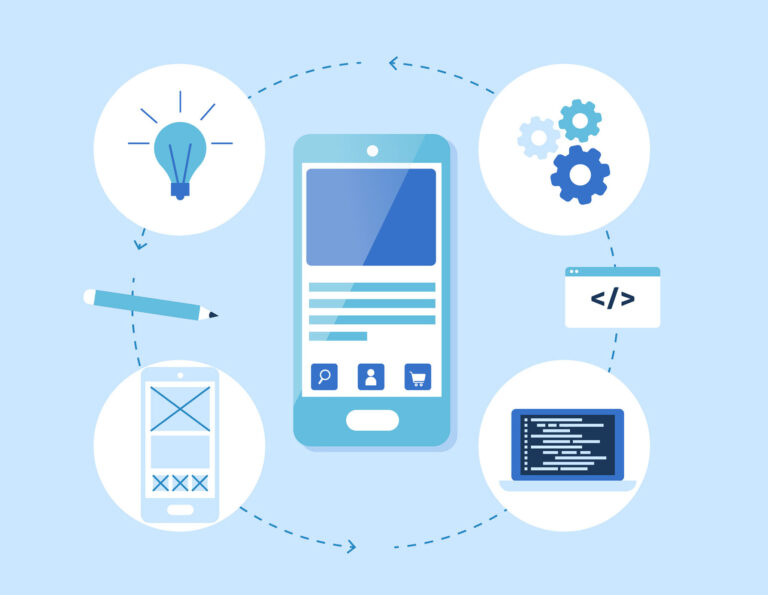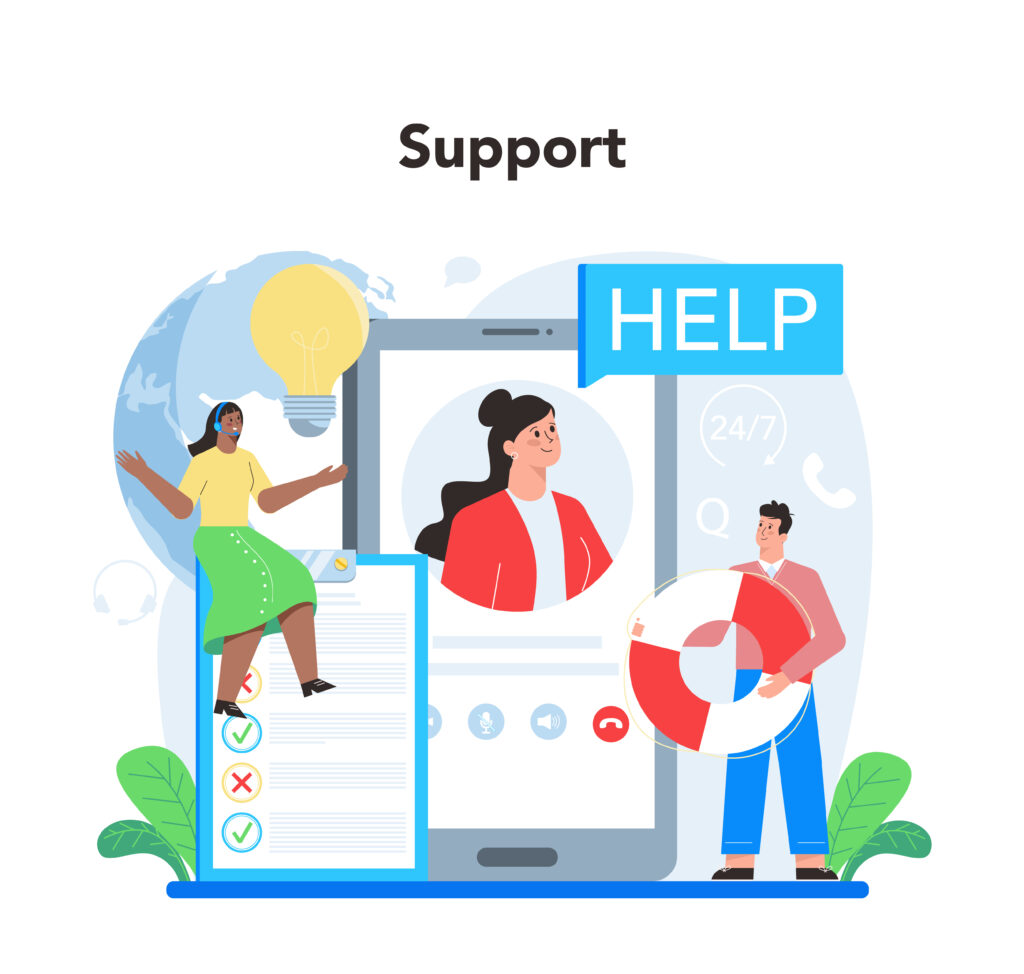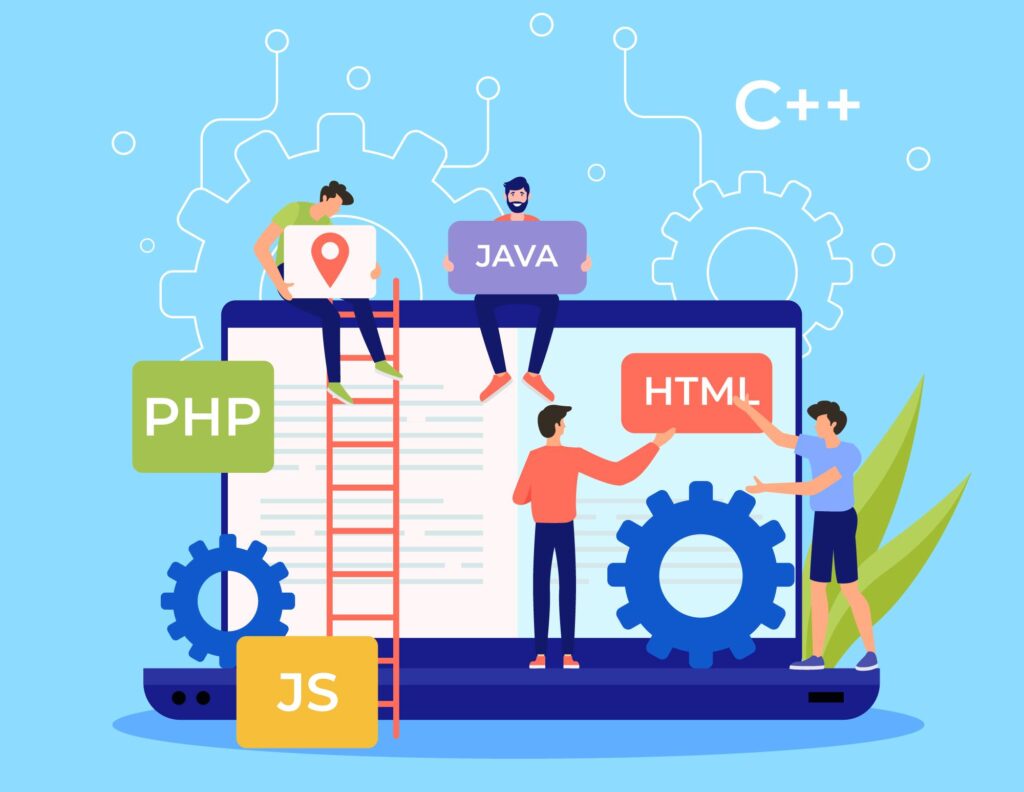How to choose the right programming language for the app development

Unlocking the secret to a standout mobile app goes beyond the surface of captivating ideas and designs; it delves into the fundamental choice of programming language. In the dynamic realm of app development, where innovation is paramount, the programming language chosen plays a pivotal role in determining success. Amidst the multitude of programming languages, each flaunting its distinct strengths and weaknesses, the selection process can be bewildering. Fret not, for we are here to guide you through the essential factors to consider when pinpointing the perfect programming language for mobile app development.
It’s imperative to recognize that the platform compatibility of the chosen language is non-negotiable, aligning with the targeted iOS, Android, or cross-platform development. Performance considerations, encompassing execution speed and memory management, are paramount for a seamless user experience. Development speed, productivity, and scalability are crucial factors, with languages like Python and Java offering agility and scalability, respectively. Active community support, extensive integration capabilities, and the future-proofing of the language contribute to a comprehensive evaluation. In the intricate tapestry of mobile app development, the right programming language emerges as the linchpin, steering your creation towards not just standing out but thriving in the competitive app landscape.
Nature of the App
Selecting the appropriate programming language is a critical determinant of an app’s success, considering the unique requirements each application type demands. It’s a well-established fact that there’s no one-size-fits-all programming language. The strategic choice of a programming language can elevate your app’s performance and overall output. Take, for instance, the realm of gaming apps, where languages like C# tailored for Unity or Swift designed for iOS development stand out. Their robust graphics capabilities and optimized performance make them ideal candidates for delivering seamless gaming experiences.
Conversely, when it comes to crafting data-driven applications, Python emerges as a frontrunner. Renowned for its simplicity and supported by an extensive array of libraries, Python streamlines the development process and enhances the functionality of data-centric applications. Recognizing the specific strengths of programming languages enables developers to harness their advantages, ultimately leading to apps that not only meet but exceed user expectations. In the dynamic landscape of app development, making informed language choices ensures that your app not only operates smoothly but also stands out with superior performance and functionality.
Platform Compatibility

In the intricate landscape of app development, the selection of a programming language that seamlessly aligns with your target platform is a pivotal determinant of success. Specifically tailored languages for each platform can unlock the full potential of your application. When setting your sights on iOS, languages like Swift and Objective-C become indispensable tools in the developer’s arsenal. Swift, known for its speed and versatility, has become the go-to language for modern iOS app development, while Objective-C continues to be a robust choice.
On the Android front, the dynamic duo of Java and Kotlin takes center stage. Java, a veteran in the Android development realm, and Kotlin, its more modern counterpart, offer developers flexibility and efficiency in crafting Android applications. For those venturing into the realm of hybrid app development, options like React Native, Flutter, and Xamarin provide a strategic advantage. These frameworks empower developers to write code once and deploy it across multiple platforms, streamlining the development process and expanding the reach of the app. In the intricate dance of language selection, aligning your development strategy with the nuances of your target platform ensures not only a harmonious development process but also sets the stage for a successful and widely accessible application.
Developer Expertise In Programming Language

For the attainment of a refined end product characterized by minimal bugs and heightened efficiency, the choice of a seasoned development team specializing in iOS, hybrid, or Android platforms is paramount. The proficiency of the development team in a specific programming language emerges as a pivotal factor influencing the overall success of the project. Opting for a language that aligns with the expertise of the development team is not merely a strategic choice; it is a catalyst for an expedited development process and an inherently superior-performing application. When developers are well-versed in the intricacies of a particular language, they navigate challenges with finesse, leveraging their familiarity to address complexities and streamline the coding process.
This synergy between the development team and the chosen language fosters a collaborative environment where efficiency is optimized, and the likelihood of encountering bugs is significantly reduced. In essence, the symbiotic relationship between a proficient development team and a strategically chosen programming language is the linchpin for the realization of a polished, bug-resistant, and highly efficient end product in the dynamic landscape of app development.
Performance Requirements

In the realm of app development, the nature of the application’s requirements profoundly influences the choice of programming language. For performance-critical applications demanding intricate calculations or real-time interactions, the prowess of programming languages such as C++ or Rust becomes indispensable. These languages are preferred due to their low-level control and optimization capabilities, allowing developers to finely tune and control the execution of code for optimal performance. The inherent efficiency of C++ and Rust proves to be a strategic asset in scenarios where every computational nuance counts, ensuring that resource-intensive tasks are executed with precision.
Conversely, for mobile app development projects where performance demands are less stringent, languages like Python or JavaScript may suffice. Python, with its simplicity and extensive library support, offers a developer-friendly environment for a variety of applications. Meanwhile, JavaScript, commonly used for front-end web development, can be harnessed in hybrid app frameworks like React Native for cross-platform compatibility. The choice between these languages hinges on the delicate balance between performance requirements and development convenience, illustrating the nuanced decision-making process that developers navigate to tailor their language selection to the specific demands of each project.
Community and Support

The significance of a programming language’s community strength and its ecosystem in the context of Android development is paramount, influencing the trajectory of a mobile app project in multifaceted ways. A robust and active community surrounding a programming language signifies a collaborative network of developers, enthusiasts, and experts who contribute to the evolution and enhancement of that language. This communal engagement results in a wealth of resources such as extensive libraries, frameworks, and a plethora of online documentation. For Android developers, tapping into such a rich repository accelerates the development process by providing readily available solutions and tools. The collaborative spirit inherent in active communities fosters an environment of continuous learning and problem-solving, empowering developers to address challenges efficiently.
Furthermore, a thriving ecosystem is a testament to the language’s relevance and adaptability. In the dynamic landscape of Android app development, having access to a diverse array of libraries and frameworks tailored to specific functionalities not only expedites the coding process but also ensures that developers can leverage cutting-edge tools to enhance the app’s features. The collective intelligence and collaborative ethos within a language’s community become invaluable assets, transforming the development journey into a collaborative and innovative endeavor that goes beyond mere coding to create robust, feature-rich, and forward-looking Android applications.
Future Scalability

Before embarking on the app development journey, it is imperative to carefully contemplate the long-term vision for your application. Anticipating the need for scalability is paramount—evaluating whether the app will be required to expand to accommodate a burgeoning user base and additional features. Opting for a programming language that not only aligns with your current development needs but also boasts robust scalability options can be a strategic decision that pays dividends in the future. The scalability of a language becomes particularly crucial as the demand for your app grows, and the infrastructure needs to gracefully handle increased loads. Choosing a language with scalability in mind mitigates the risk of encountering scalability challenges down the line, sparing you from potential rewrites and redevelopment efforts. In essence, this foresighted approach lays the foundation for a more adaptive and sustainable application, capable of evolving seamlessly with the evolving requirements and demands of your user base, ensuring the longevity and success of your app in the dynamic landscape of technology.
Right language for better-performing apps

Before embarking on the app development journey, it is imperative to carefully contemplate the long-term vision for your application. Anticipating the need for scalability is paramount—evaluating whether the app will be required to expand to accommodate a burgeoning user base and additional features. Opting for a programming language that not only aligns with your current development needs but also boasts robust scalability options can be a strategic decision that pays dividends in the future. The scalability of a language becomes particularly crucial as the demand for your app grows, and the infrastructure needs to gracefully handle increased loads. Choosing a language with scalability in mind mitigates the risk of encountering scalability challenges down the line, sparing you from potential rewrites and redevelopment efforts. In essence, this foresighted approach lays the foundation for a more adaptive and sustainable application, capable of evolving seamlessly with the evolving requirements and demands of your user base, ensuring the longevity and success of your app in the dynamic landscape of technology.
Apps Ait: Making Your Dream App A Reality

If you are on the hunt for a top-tier mobile app development team, your search concludes with Apps AiT, a premier player in the field. With a formidable reputation for crafting innovative and user-centric applications spanning diverse domains, Apps AiT stands out as a leading mobile app development company. Bolstered by a proven track record, their seasoned app development team boasts proficiency in a broad spectrum of programming languages, ensuring versatility and expertise in meeting diverse project requirements.
Apps AiT specializes in iOS app development, cross-platform solutions, and Android app development, showcasing a commitment to catering to the unique needs of various platforms. Their cutting-edge technology and adept development team work in unison to breathe life into your app concept, ensuring a seamless transition from vision to reality. The company’s commitment to delivering exceptional app development services is underlined by its dedication to staying abreast of the latest technological advancements and industry trends.
Partnering with Apps AiT means tapping into a reservoir of experience, creativity, and technical prowess. Transform your visionary ideas into tangible, high-performing applications that resonate with users. Elevate your app development journey with Apps AiT and witness the realisation of your digital aspirations through their exceptional and comprehensive app development services.
